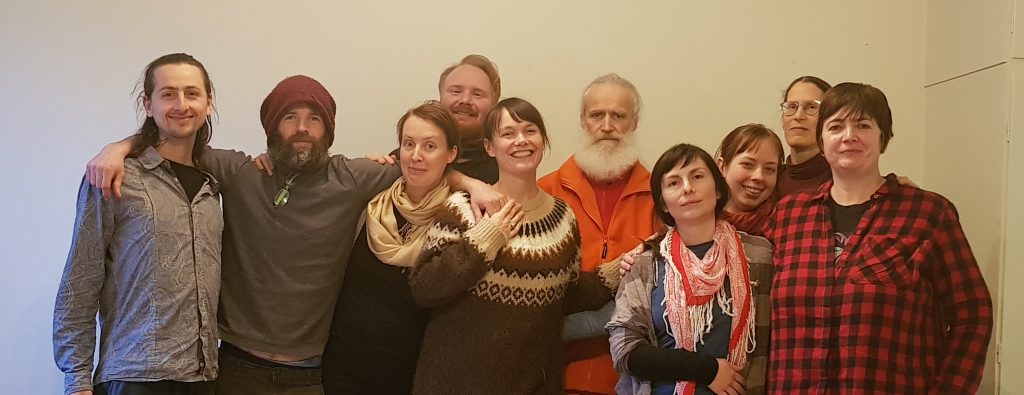
This project is called “Volunteering, Solidarity and Sustainability”. It was started by four organisations who each host relatively large numbers of volunteers with the aim of improving the quality of our volunteer hosting. We wanted to do this by sharing best practices, visiting each other’s projects to see how we do things, and discussing the problems we commonly face while hosting volunteers and sharing information about how we deal with them. We recalled how difficult it was to find such information when we began our projects and guessed that other organisations who are hosting, or planning to host volunteers would greatly appreciate having access to ideas and information on best practices, common problems, etc.
The partner organisations are all eco-communities and members of the Global Ecovillage Network. We are Sieben Linden in Germany, Ängsbacka in Sweden, Cloughjordan Ecovillage in Ireland and Ananda Gaorii in Denmark. Each of us are hosting between 8 to 35 volunteers at any given time (some ESC, some from other programs) and each of us are working in the field of education for sustainable development and helping to develop the resilience of our local communities.
The main objective of the project is to increase the quality of volunteering activities. The primary question we are exploring is “What are the practices and prerequisites that make a volunteering project successful – both for the volunteers and for the organisations involved?”
At the heart of the project is a peer learning process that takes place mostly during two peer-to-peer trainings. The project also involves visiting each of the four communities and witnessing hands on each other’s hosting processes.
The project will create two main outputs that will be made freely available online:
- A document that collects the success factors identified in the peer learning process (a brochure or code of practice document).
- A collection of good practice examples from our work, in the form of short videos, interviews and/or texts.
As part of the project, each partner organisation will review their volunteering practices, upgrading to the next level with inspiration from the peer learning process and an internal reflection and evaluation process. At the time of writing we have already had a visit to Angsbacka in Sweden and held several online meetings. Unfortunately, due to the pandemic, visits to the other three projects have been postponed. Nevertheless the visit to Angsbacka and our online meetings and discussions have already given all of us a great amount of inspiration and practical ideas about improving our volunteer hosting practices in a wide range of areas covering recruiting processes, induction of volunteers, mentoring processes, finances and budgets, learning activities, etc. We are excited and looking forward to the remaining meetings and the valuable insights they will bring.

